With the demand for plastic surgery at an all-time-high, make sure your practice gets the attention it deserves with personalized, results-driven SEO strategies.
The ultimate goal of plastic surgery search engine optimization (SEO) is to allow your medical website to be easily found in the results of every major search engine. In order to achieve this goal, it is imperative that you have a team of Internet marketing professionals devoted to optimizing your website content and marketing objectives through a customized SEO strategy designed specifically for your practice.
Today’s digital landscape is more competitive than ever, and the aesthetic space is no exception. As demand for cosmetic treatments continues to surge, prospective patients are spending more time researching providers online before making a decision. Without a dominant online presence, your practice risks being overlooked by patients ready to make life-changing decisions.
In this environment, SEO isn’t just a marketing tool—it’s the foundation of long-term practice growth and visibility. High search rankings drive trust, establish authority, and position your practice in front of the patients who matter most. When you combine this with the power of branding and reputation management, SEO becomes an essential strategy for increasing website traffic, improving lead generation, and fostering sustained business growth.
At Rosemont Media, we understand how vital it is for plastic surgeons to rise above the competition. Our SEO strategies are custom-built to keep your practice visible, competitive, and aligned with the latest trends in patient search behavior. We are dedicated to creating and implementing a plastic surgery SEO strategy that follows search engine regulations to set you apart from other competitors in your market. Our team has an unmatched level of experience in all aspects of medical search engine optimization. We would love to work with you to take care of each of your plastic surgery website strategy and online marketing needs!
- What is Plastic Surgery SEO?
- On-Page SEO Elements
- Generative Engine Optimization (GEO)
- Keywords for Plastic Surgery SEO
- Content Marketing for Plastic Surgeons
- Hub & Spoke Content Strategy for Plastic Surgery Websites
- Local SEO Strategies
- Building Backlinks
- Why Hire an SEO Agency
- Plastic Surgery SEO Cost
- Technical SEO for Plastic Surgery Sites
- ADA Compliance and SEO: Why Accessibility Matters
- Conversion Rate Optimization & User Experience
- SEO Tracking & Analytics for Plastic Surgeons
- Other Frequently Asked Questions
What is Plastic Surgery SEO?
Plastic surgery SEO encompasses a number of techniques and healthcare marketing strategies designed to boost a page’s ranking in search engines like Google. A higher ranking on Google’s SERPs — short for Search Engine Results Pages — means greater visibility for your business and increased website traffic, ultimately creating the potential for lead generation, higher patient conversion, and practice growth. Quality SEO is the only link between your practice and people in your area searching for plastic surgery services, so an effective strategy is vital for long-term success.
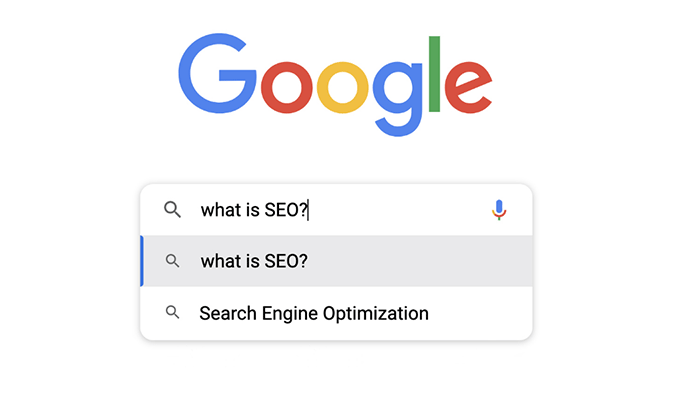
Driving Patient Inquiries Through SEO
In addition to improving visibility, a well-executed SEO strategy directly impacts the volume and quality of patient inquiries your practice receives. When prospective patients search for procedures like rhinoplasty, facelift surgery, or tummy tuck surgery, appearing at the top of search results significantly increases the chances that they’ll visit your website—and more importantly, contact your office to schedule a consultation.
SEO vs. Pay-Per-Click (PPC): A Long-Term Investment
While Pay-Per-Click (PPC) advertising can provide immediate visibility, it’s often a short-term solution with ongoing costs. SEO, on the other hand, is a long-term investment that builds sustainable traffic over time without the constant need to pay for each website visitor. Unlike ads that disappear the moment your budget runs out, SEO efforts continue to generate results well after the work has been implemented, making it one of the most cost-effective digital marketing strategies for plastic surgeons. While PPC can be an excellent way of enhancing your marketing efforts, it should serve as a complement to a robust SEO strategy.
Integrating SEO with Branding and Reputation
SEO also plays an important role in shaping your brand identity and online reputation. When potential patients consistently see your practice name at the top of search results and find valuable, informative content on your website, it reinforces trust and positions you as a leading authority in your field.
This seamless integration of SEO with branding efforts can not only attract more patients but also support long-term loyalty and positive word-of-mouth referrals.
Key On-Page SEO Elements for Plastic Surgeons
When it comes to staying ahead of the market and securing your position as a top provider of plastic surgery, it’s important to implement sophisticated SEO strategies on your website. By optimizing your pages for your target demographic, you can ensure optimal reach and increase brand awareness online. There are many ways to tailor your healthcare marketing content to your audience, but the most effective tactics involve taking advantage of invaluable on-page SEO tools, such as:
- Title tags
- Meta descriptions
- Header tags (H1, H2, H3, etc…)
- Quality content that’s regularly updated
- Images and multimedia
- Interlinking
- Mobile optimization
- Page speed and performance
- Schema markup

-
Aligning Content with User Intent
While implementing these technical elements is essential, aligning your content with user intent is equally important. Google’s algorithms have become increasingly sophisticated, prioritizing content that directly answers the questions and needs of searchers. This means your website should clearly address common patient concerns, provide detailed information about procedures, and offer helpful resources that guide patients through every stage of their decision-making journey.
-
Enhancing Accessibility and ADA Compliance
Additionally, optimizing for website accessibility and ADA compliance is not only a best practice for inclusivity, but also an important factor that can enhance your SEO performance. Search engines favor websites that provide a positive user experience for all visitors. By including descriptive alt text for images, ensuring proper color contrast, and enabling keyboard navigation, your site becomes more accessible while also benefiting from improved engagement metrics like lower bounce rates and longer session durations.
You can find more information on this important aspect of plastic surgery websites in the “ADA Compliance and SEO: Why Accessibility Matters” section that appears later on this page.
-
The Power of Image Optimization
Don’t overlook the power of image optimization. Since plastic surgery is a highly visual field, before-and-after galleries and high-quality procedural images are key conversion drivers. Compressing images for faster load times, using descriptive file names, and incorporating alt tags not only improve accessibility but also help your images appear in Google Image Search—another valuable channel for driving organic traffic to your site.
-
Combining Technical Strength with User-Centric Content
By combining strong technical foundations with user-centric content and accessibility considerations, your on-page SEO strategy can significantly improve search visibility, increase website engagement, and ultimately drive more qualified patient inquiries.
What Is Generative Engine Optimization (GEO) for Plastic Surgeons?
Generative Engine Optimization (GEO) refers to the strategic approach of optimizing websites for AI-driven search systems. As search engines increasingly integrate AI tools to generate answers, summarize information, and present results, GEO focuses on ensuring that a plastic surgery website’s content aligns with these advancements. This optimization has become essential because it impacts how potential patients find and interact with your practice’s information online.
For plastic surgeons, GEO can help improve visibility in AI-powered search results, enhance credibility, and attract more qualified leads. As search engines evolve, incorporating GEO into your digital marketing strategy can ensure your website stays competitive and prominent in key search results. Here are some key GEO features and how they impact plastic surgery marketing:
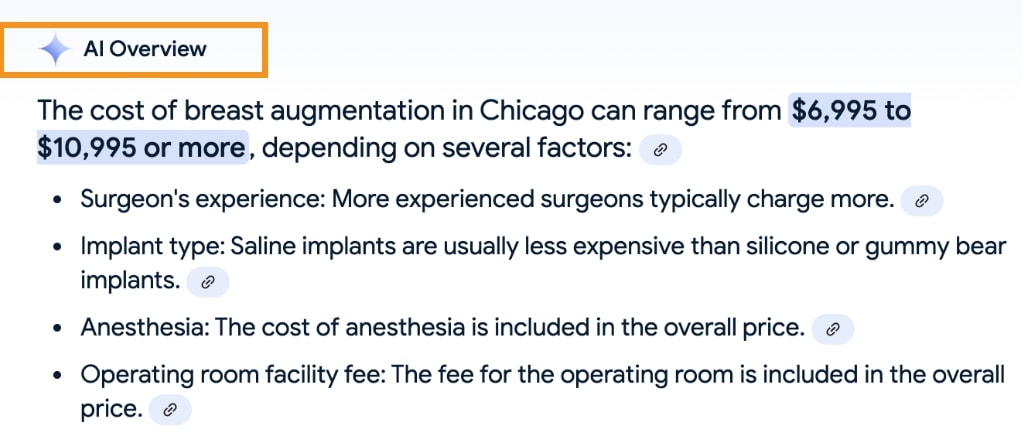
AI Overviews
AI-generated overviews are short summaries that Google presents based on a website’s content. Optimizing for AI overviews ensures that your plastic surgery services and expertise are accurately reflected when Google’s AI tools summarize your website, improving user engagement and trust.
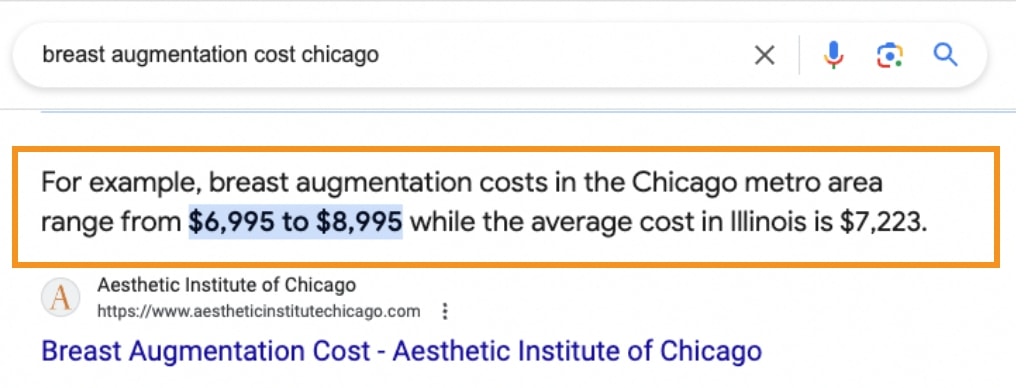
Featured Snippets
Featured snippets are a type of rich result in plastic surgery SEO that offers brief answers at the top of Google search results. Crafting concise, informative responses to common plastic surgery questions can position your website as a trusted resource, driving higher traffic.
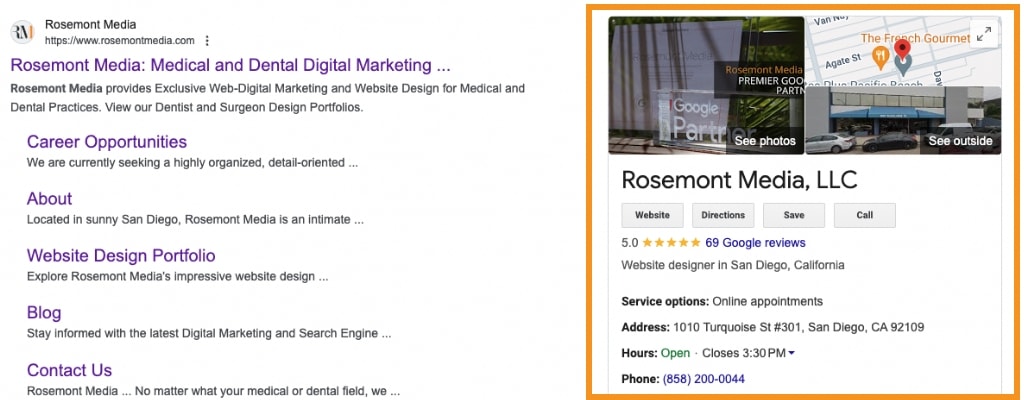
AI-Powered Knowledge Panels
Knowledge panels are rich information boxes that appear on search result pages. By optimizing your practice’s online profile, including credentials, services, and testimonials, your plastic surgery practice can appear in these prominent spots, boosting credibility.

People Also Ask (PAA)
PAA boxes offer related questions based on a user’s query. Including structured answers to plastic surgery FAQs on your website can increase the chances of your content appearing in this section, capturing more interest from prospective patients.
Voice Search Optimization
Voice search queries often differ from traditional text-based searches. By focusing on natural language, long-tail keywords, and conversational tone, you can make sure your plastic surgery website is optimized for voice search, allowing patients using devices like Siri or Alexa to find you more easily.
By adopting GEO strategies, your plastic surgery website can align with the latest AI-driven search engine behaviors, enhancing your online visibility and patient acquisition.
How AI Tools Like ChatGPT and Gemini Impact Search
Emerging AI platforms such as ChatGPT and Gemini are changing how information is delivered to users. Instead of relying solely on traditional search results, these tools curate and present direct answers pulled from trusted websites. If your website content isn’t properly optimized for these AI-driven summaries, you risk being left out of this evolving search landscape.
For example, when a prospective patient asks an AI assistant, “What’s the recovery time for a facelift?”, the AI may pull content directly from websites with well-structured answers. By incorporating FAQs, clear procedural explanations, and schema markup, you increase the likelihood that your content will be selected and showcased.
Leveraging Schema-Specific Strategies for Medical Practices
Structured data, or schema markup, helps search engines better understand the content of your website. For plastic surgeons, implementing medical-specific schema such as “FAQPage”, “Physician”, and “MedicalProcedure” can improve how your content appears in AI overviews, featured snippets, and knowledge panels.
This not only boosts visibility but also reinforces your authority and expertise in the field. Schema helps Google and AI platforms surface the most relevant and authoritative information, positioning your practice as a leading resource for potential patients.
Preparing for the Future of AI Search
As AI-powered search continues to evolve, incorporating GEO strategies ensures your practice remains competitive and visible across the latest search technologies. Focusing on clear, authoritative content; properly structured markup; and direct, helpful answers to common patient questions will help you future-proof your SEO strategy and maintain a strong online presence.
How Are Keywords Used in Plastic Surgery SEO?
Keywords are the phrases and terms most commonly used in search queries. Incorporating the most valuable keywords into your website’s SEO strategy is critical to ensuring you appear on Google’s results pages when relevant searches are made. However, it’s important to exercise caution — haphazardly adding multiple keywords wherever possible is a “black hat” strategy known as “keyword stuffing,” and usually penalized by Google. The goal should be to naturally weave keywords into your on-page SEO in a way that’s helpful to the reader, and mirrors how people would organically input search queries into Google.
Knowing which keywords to implement, where they’re most effective, and how often to use them requires extensive keyword research beyond simply guessing what types of searches people are making. Rather than wasting time and money on trial and error, it’s typically more beneficial to enlist a professional SEO company who specializes in digital healthcare marketing.
Understanding Long-Tail vs. Short-Tail Keywords
A well-rounded keyword strategy should include a balance of short-tail and long-tail keywords.
- Short-tail keywords are broad terms like “facelift surgery” or “plastic surgeon.” While these terms have high search volumes, they are highly competitive and often lack clear user intent.
- Long-tail keywords, on the other hand, are more specific phrases such as “best facelift surgeon in San Diego” or “how long does rhinoplasty recovery take?” These keywords typically have lower search volumes but attract highly qualified traffic that’s more likely to convert into patient consultations.
Integrating both types into your content ensures that you capture a wide range of searchers—from those just starting their research to individuals ready to schedule a procedure.
Implementing Keyword Clustering and Content Mapping
Rather than optimizing a single page for one keyword, modern SEO strategies focus on keyword clustering. This involves grouping related keywords together to create comprehensive content that satisfies multiple search intents. For example, a primary page about facelift surgery can link to supporting pages or blog posts covering related topics such as facelift recovery, the cost of a facelift, and non-surgical facelift alternatives.
This approach supports a hub-and-spoke content model (described in its section below) that improves both SEO and user experience, guiding visitors through a structured journey of related content. Additionally, keyword clustering helps enhance internal linking and signals to Google that your website is a topical authority in plastic surgery.
Aligning Keywords with Search Intent
Finally, it’s crucial to align your keywords with the search intent behind them. Are users seeking information, comparing providers, or ready to make a decision? Content should be tailored to meet those varying needs:
- Informational Intent: Educational blog posts, FAQs, and recovery guides.
- Comparative Intent: Procedure comparisons, patient testimonials, and before-and-after galleries.
- Transactional Intent: Service pages with clear calls-to-action and consultation booking options.
By understanding and addressing the underlying intent behind specific keywords, your website can deliver more relevant content, improve engagement, and increase conversion rates.
How Does Content Marketing Factor into Plastic Surgery SEO?
In the realm of SEO, content is king. Google places a significant emphasis on the quality and novelty of website content. As a result, sites that host a consistent stream of fresh, valuable content are often rewarded with improved search engine rankings, and those who do not may experience a decline in their rankings. With a customized content marketing strategy, you can ensure a flow of new, original content is being continuously added to your website in the form of blog posts, press releases, page updates, and more, ultimately positioning your site as a trusted resource for online visitors while helping to improve your search result rankings and visibility.
When you create relevant, informative content that is both engaging to read and helpful to those who visit your site, your efforts can be handsomely rewarded by both search engines and prospective patients alike. Not only does quality content marketing boost SEO rankings, but it also generates leads for your practice and works to grow your patient base.

Repurposing Content Across Multiple Formats
One of the most effective ways to maximize the reach of your content marketing efforts is by repurposing existing content into different formats. For example, a detailed blog post about facelift recovery tips can be transformed into a short social media video, an engaging infographic, or a series of Instagram carousel posts.
This approach allows you to reach patients across a variety of platforms and cater to different content consumption preferences. Repurposing not only extends the lifespan of your original content but also increases the likelihood of engaging with prospective patients who prefer visual or video-based content over written articles.
Using Content for Patient Education and Trust-Building
Content marketing also plays a critical role in educating patients and building long-term trust. Patients considering plastic surgery often have many questions and concerns before they’re ready to schedule a consultation. By publishing in-depth educational resources—such as recovery timelines, procedural comparisons, and realistic expectations for results—you establish your practice as a knowledgeable and compassionate authority.
This type of trust-building content helps nurture patients through the decision-making process and positions your practice as the clear choice when they’re ready to move forward. Additionally, it supports your SEO goals by keeping visitors engaged on your site longer, reducing bounce rates, and increasing the likelihood of return visits.
Creating a Consistent Publishing Schedule
Search engines reward websites that are regularly updated with fresh content. Establishing a consistent publishing schedule for blog posts, press releases, procedure page updates, and patient testimonials keeps your website active in the eyes of Google while providing ongoing value to visitors.
A steady stream of new content not only improves your chances of ranking for emerging keywords but also demonstrates that your practice is active, engaged, and in tune with the latest developments in the field of plastic surgery.
Hub & Spoke Content Strategy for Plastic Surgery Websites
A successful SEO strategy isn’t just about creating random pieces of content—it’s about building a structured, interconnected system that guides users through their journey and signals topical authority to search engines. This is where the hub and spoke content model comes into play.
For plastic surgery websites, this approach helps organize content around key procedures and patient interests, improving both search visibility and user experience.
Using Procedure Landing Pages as Hubs
In this model, procedure landing pages act as central hubs for important topics such as facelift surgery, breast augmentation, or liposuction. These pages provide high-level overviews of the procedure, including key benefits, candidacy information, and recovery expectations.
From each hub page, you create supporting “spoke” content that covers related subtopics in greater detail. These might include:
- Blog posts answering specific patient questions (e.g., “What’s the Recovery Time After a Facelift?”).
- Detailed pages discussing risks, costs, and non-surgical alternatives.
- Patient testimonials and before-and-after galleries tied to the specific procedure.
By linking the spoke content back to the main hub page, you build a clear content hierarchy that improves keyword relevance and strengthens internal linking. This model is also essentially used to separate sections of a website by treatments for specific areas of the body. For instance: the Facial Plastic Surgery landing page will include links to surgical facial rejuvenation procedures; the Body Surgery page lists treatments focused on body contouring; and the Breast Surgery page houses all options relating to surgical breast enhancement.
Creating Interlinked FAQs, Recovery Guides, and Patient Resources
Supporting content should also include highly relevant FAQs, recovery timelines, and patient education materials. These resources help capture long-tail keyword searches and address patient concerns throughout the decision-making process.
For example, a hub page focused on rhinoplasty might be supported by:
- A FAQ page or section answering common questions about rhinoplasty recovery.
- A blog post comparing rhinoplasty vs. non-surgical nose reshaping.
- A downloadable recovery guide or checklist for post-surgery care.
This interconnected structure ensures that no matter what stage of research a potential patient is in, they can easily find the information they need on your site.
SEO and User Experience Benefits of the Hub & Spoke Model
Implementing this content strategy offers several key advantages:
- Enhanced Topical Authority: Search engines recognize that your website thoroughly covers important topics, which can improve your rankings for competitive keywords.
- Improved User Experience: Visitors can easily navigate between related content, increasing time on the site and engagement metrics.
- Higher Conversion Potential: By guiding users through relevant content based on their interests and search intent, you increase the chances they’ll take the next step and contact your practice.
Incorporating a hub and spoke strategy ensures that your content marketing efforts are purposeful, organized, and designed to maximize both visibility and conversions.
What Are Local SEO Strategies for Plastic Surgeons?
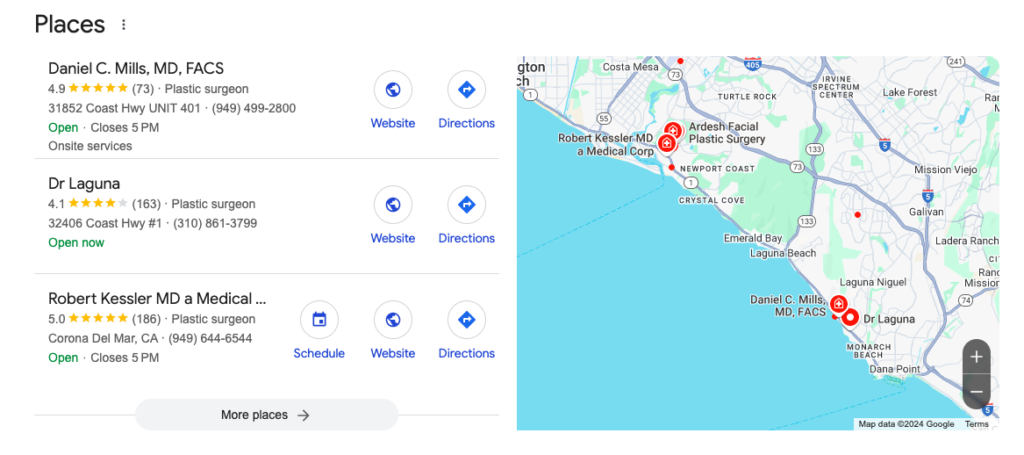 While traveling to another city or state for plastic surgery isn’t unheard of, most people begin their search by looking near their own community. This is why implementing SEO on a local level for your plastic surgery practice is imperative. You can target local searches in your area with tools ranging from strategic keyword research to claiming your Google Business Profile (formerly known as Google My Business), optimizing local online directories, streamlining your interlinking structure, and strengthening your social media presence, among other techniques.
While traveling to another city or state for plastic surgery isn’t unheard of, most people begin their search by looking near their own community. This is why implementing SEO on a local level for your plastic surgery practice is imperative. You can target local searches in your area with tools ranging from strategic keyword research to claiming your Google Business Profile (formerly known as Google My Business), optimizing local online directories, streamlining your interlinking structure, and strengthening your social media presence, among other techniques.
When executed intentionally, efforts to maximize local SEO greatly increase the visibility of your practice amongst the very people searching for plastic surgery services in your market. One primary goal of local SEO for plastic surgeons is to be featured in the coveted Google Local Pack — a prominent window at the top of Google’s SERPs highlighting three businesses for every local search query. Inclusion in the Google 3-Pack not only positions your business above your competitors in Google’s search results, but it also enhances credibility while boosting opportunities for website traffic, patient conversion, and practice growth.
Our medical SEO strategies at Rosemont Media can help you improve your website’s rankings locally and even globally. Whether you are targeting your surrounding community or patients worldwide, we can utilize specific keywords and locations to drastically increase the chance that prospective patients will find you on leading search engines.
Optimizing Your Google Business Profile (GBP)
A fully optimized Google Business Profile (GBP) is essential for local search visibility. This free tool allows you to manage how your practice appears on Google Search and Maps. Be sure to:
- Verify and claim your business profile.
- Use accurate and consistent NAP (Name, Address, Phone Number) information.
- Select relevant business categories, such as Plastic Surgeon or Cosmetic Surgery Clinic.
- Upload high-quality photos, including office interiors, staff headshots, and before-and-after images (following HIPAA guidelines).
- Regularly update your business hours and respond promptly to patient reviews.
An optimized GBP not only improves your chances of ranking in the Google 3-Pack but also enhances credibility by showcasing positive reviews and accurate business information.
Building Local Citations and Directory Listings
Citation building involves listing your practice in reputable online directories such as Healthgrades®, Vitals®, RealSelf®, the American Society of Plastic Surgeons® (ASPS), and local Chamber of Commerce websites. Ensure that your NAP information remains consistent across all platforms, as discrepancies can negatively impact your local SEO rankings.
In addition to national healthcare directories, explore local business directories specific to your city or state to further strengthen your practice’s local search presence.
Implementing a Review Acquisition Strategy
Online reviews are a major ranking factor for local SEO and play a critical role in patient decision-making. Develop a proactive review acquisition strategy by encouraging satisfied patients to leave feedback on your Google Business Profile, RealSelf, and other relevant platforms.
Consider integrating automated follow-up emails or text reminders after appointments, making it easy for patients to leave a review. When you respond to reviews—both positive and negative—be sure to do so in a professional, ethical, and timely manner to show that your practice values patient feedback and engagement.
Creating Localized Blog Content and Geo-Tagging Images
Publishing localized blog content helps you rank for city- and region-specific search terms. For example, articles like “What to Expect from a Facelift in San Diego” or “Top 5 Questions Philadelphia Patients Ask About Rhinoplasty” target searchers in specific geographic areas, increasing the likelihood of local visibility.
Additionally, when uploading images to your website, it’s good to use geo-tagging to embed location data into image metadata. This subtle tactic helps search engines associate your visual content with your geographic service area, further supporting your local SEO efforts.
How Can Plastic Surgeons Build High-Quality Backlinks?
Quality backlinks are one of the most important ranking factors for just about every major search engine available — including Google. Also called “inbound links,” backlinks are links from another website that direct back to your site. The link can be utilized in text, an image, or a graphic, as long as the link is coming from a separate website. Backlinks are a crucial component of how Google measures how authoritative, or trustworthy, your content is. Authority and relevance are among the most integral aspects of a page’s SEO strategy, making high-quality backlinks invaluable.
There are many ways doctors can gain credible backlinks for their plastic surgery website, including building directory profiles on reputable websites (such as the Better Business Bureau or the American Society of Plastic Surgeons), creating business listings for local search, gaining links on .edu or .gov sites, and enhancing social media profiles, among other effective tactics.

Developing a Backlink Acquisition Strategy
A structured backlink acquisition strategy is key to earning authoritative links that improve your search engine rankings. Some highly effective tactics include:
- Contributing Guest Posts: Publish expert articles on reputable medical websites, health blogs, and industry publications to gain high-quality backlinks and establish your authority.
- Public Relations (PR) Outreach: Partner with local media outlets to contribute expert commentary or press releases about community events, new services, or patient success stories. These efforts often result in backlinks from respected news websites.
- Participating in Medical Associations: Maintain active profiles and contribute thought leadership content to respected organizations like the ASPS and The Aesthetic Society®.
By diversifying your backlink sources, you can build a natural, healthy link profile that signals trustworthiness and authority to Google.
Emphasizing E-E-A-T to Build Trust and Authority
Google’s ranking systems increasingly emphasize E-E-A-T: Experience, Expertise, Authoritativeness, and Trustworthiness. Earning backlinks from reputable healthcare websites and industry leaders reinforces your practice’s credibility and supports higher search rankings.
When building backlinks, it’s important to prioritize websites that demonstrate their own authority and relevance. A few high-quality links from respected sources will provide far greater SEO value than dozens of low-authority links from unrelated or spammy websites.
Identifying and Disavowing Low-Quality Links
Not all backlinks are beneficial. Links from questionable or spam-heavy websites can harm your site’s reputation and search performance. Regular reviews of your backlink profile can be performed using tools like Google Search Console or SEMrush to identify low-quality or irrelevant links.
If harmful backlinks are discovered, proactive steps can be taken to request their removal. When that’s not possible, Google’s Disavow Tool may be necessary to prevent these links from negatively impacting your SEO.
A healthy, authoritative backlink profile is an essential component of long-term SEO success and plays a critical role in building your online reputation as a trusted provider of plastic surgery services.
Why Hire an SEO Agency for Your Plastic Surgery Practice
Digital marketing for plastic surgeons and healthcare practices is an ever-evolving landscape that requires constant vigilance of Google’s changing regulations and ranking factors. There are myriad components related to plastic surgery web design, SEO, content development, social media and email marketing, and media buying that all contribute to the long-term success of your strategy. Rather than work with a provider who has limited knowledge of the unique marketing challenges faced by plastic surgeons and medical professionals, the ability to establish a comprehensive plan tailored to your practice’s needs, services, geographic location, and business model highlights just one of the many reasons why you should work with a marketing agency that specializes in your field.
By working exclusively with those in the plastic surgery and elective healthcare fields, Rosemont Media has incomparable experience creating a customized approach to help your practice flourish — both online and offline. We keep abreast of the latest trends and best practices in SEO and leverage these tools to achieve your unique practice goals so you don’t have to.
In-House SEO vs. Hiring an Experienced Agency
While some practices may consider handling SEO internally, there are significant advantages to working with a specialized agency.
| In-House Team | Professional SEO Agency |
|---|---|
|
Limited SEO expertise
|
Access to specialized experts
|
|
Reactive approach
|
Proactive strategy & trend insights
|
|
Limited tools and resources
|
Advanced SEO tools & data analysis
|
|
Slower results
|
Faster, more measurable results
|
|
Difficult to scale efforts
|
Scalable strategies for growth
|
An experienced agency brings a full team of SEO strategists, content creators, technical specialists, and digital marketing professionals to the table—resources that are often beyond the reach of in-house teams.
Red Flags to Avoid When Choosing an SEO Vendor
Selecting the right agency is critical. Watch for these common red flags that may indicate an agency is not aligned with your best interests:
- Guaranteed #1 Rankings: No agency can promise top positions in Google results—SEO is a long-term, organic process.
- Black Hat Tactics: Beware of agencies using unethical methods like keyword stuffing, paid link schemes, or cloaking, which can result in penalties.
- Lack of Transparency: If an agency won’t provide regular reports or clear explanations of their strategies, it’s a sign they may not be delivering real value.
- One-Size-Fits-All Strategies: Effective SEO is customized. Avoid agencies that offer cookie-cutter solutions without considering your unique market or goals.
Success Story
“Rosemont is by far the BEST marketing company we have ever worked with! Our online ranking has increased significantly since we started working with them. We are getting more online leads than ever. They thoroughly understand our branding, image, and services and are able to articulate through all their marketing efforts.”
By partnering with a specialized agency like Rosemont Media, your practice benefits from years of experience, proven strategies, and a deep understanding of the competitive plastic surgery landscape.
Technical SEO for Plastic Surgery Sites
A strong SEO strategy isn’t just about content and keywords—it also relies on a solid technical foundation that ensures your website is easily discoverable, fast, and user-friendly. Technical SEO focuses on optimizing the behind-the-scenes elements of your website to help search engines crawl, index, and rank your content effectively. For plastic surgeons, technical SEO is particularly important because a slow, poorly optimized website can lead to lost patient inquiries and a negative first impression.
Core Web Vitals and User Experience
Google’s Core Web Vitals are key performance metrics that measure the quality of a user’s experience on your website. These include:
- Largest Contentful Paint (LCP): Measures how quickly the main content loads.
- First Input Delay (FID): Assesses how responsive your website is to user interactions.
- Cumulative Layout Shift (CLS): Evaluates how visually stable your website is during loading.
Ensuring fast load times, responsive design, and a visually stable experience keeps visitors engaged and reduces bounce rates—both of which contribute to improved SEO rankings.
Mobile-First Indexing
With the majority of online searches now performed on mobile devices, Google has fully transitioned to mobile-first indexing. This means the mobile version of your website is the primary version Google uses to evaluate and rank your site.
For plastic surgery practices, this makes it critical to:
- Use responsive design that works seamlessly across all devices.
- Optimize mobile page speed and reduce large image files.
- Ensure easy-to-use navigation and clear call-to-action buttons on mobile screens.
Crawlability and Indexing
If search engines can’t properly crawl and index your website, even the most valuable content won’t appear in search results. Key technical steps include:
- Submitting an XML sitemap through Google Search Console.
- Ensuring proper use of robots.txt files to control which pages should or shouldn’t be indexed.
- Identifying and fixing crawl errors using tools like Google Search Console or SEMrush.
- Implementing canonical tags to prevent duplicate content issues and consolidate ranking signals.
The Benefits of Regular Technical SEO Audits
Technical issues can quietly accumulate over time, impacting both user experience and search rankings. Conducting regular technical SEO audits ensures that your website remains healthy, fast, and optimized for both users and search engines.
Common audit tasks include:
- Checking for broken links and redirect issues.
- Evaluating site speed and performance.
- Reviewing structured data implementation.
- Ensuring HTTPS security across all pages.
These are all regular maintenance tasks undertaken by agencies such as ours in order to ensure SEO strategies and websites can work properly and perform well. By addressing these technical factors, you not only improve your search rankings but also create a smoother, more satisfying experience for prospective patients visiting your site.
ADA Compliance and SEO: Why Accessibility Matters
In today’s digital environment, having an accessible website is not only about doing the right thing—it’s also a smart business and SEO strategy. Ensuring that your plastic surgery website is compliant with the Americans with Disabilities Act (ADA) helps create an inclusive online experience for all users, including those with disabilities. At the same time, accessibility improvements can positively impact your search engine rankings, user engagement, and even reduce legal risk.
The Importance of Accessible Design
An accessible website removes barriers that may prevent people with disabilities from navigating your content. This includes individuals who use assistive technologies like screen readers, as well as those with visual, auditory, or motor impairments.
Key accessibility best practices include:
- Adding descriptive alt text for all images, including before-and-after photos and procedural graphics.
- Using sufficient color contrast between text and background elements to ensure readability.
- Ensuring all interactive elements (forms, buttons, menus) are fully operable using keyboard navigation.
- Providing transcripts or captions for video content.
- Avoiding elements that cause motion sickness or distraction, such as auto-scrolling or flashing animations.
By addressing these factors, you make it easier for all users to interact with your site and access important information about your services.
How ADA Compliance Supports SEO
Many accessibility enhancements overlap directly with SEO best practices. Search engines prioritize websites that offer a high-quality user experience, and accessibility improvements often lead to:
- Lower bounce rates and higher engagement due to better navigation and readability.
- Improved mobile usability, a critical factor in Google’s mobile-first indexing.
- Enhanced visibility in search results through proper use of structured data and descriptive alt text.
Additionally, Google’s algorithms favor websites that load quickly and present clean, well-organized code—both of which are essential components of ADA-compliant design.
Mitigating Legal Risks
Failure to comply with ADA guidelines can expose your practice to costly legal claims. In recent years, there has been a significant rise in lawsuits targeting businesses for having non-compliant websites.
By proactively addressing accessibility issues, you not only serve a wider audience but also reduce the risk of facing legal challenges related to digital accessibility. Conducting regular ADA compliance audits and working with experienced web developers can help ensure your website meets the latest accessibility standards.
Making Accessibility a Priority
Incorporating ADA compliance into your website strategy demonstrates your commitment to patient care and inclusivity. It ensures that every prospective patient—regardless of ability—can explore your services, schedule consultations, and engage with your content seamlessly.
As an added benefit, these efforts contribute to stronger SEO performance and a more user-friendly website experience, helping your practice grow while staying aligned with important ethical and legal considerations.
SEO Tracking & Analytics for Plastic Surgeons
 No SEO strategy is complete without a system for tracking performance and measuring success. By consistently monitoring key metrics, you can identify which strategies are working, where there’s room for improvement, and how to maximize the return on your marketing investment. Analyzing this data allows you to make informed, strategic decisions that help grow your practice over time, and this type of analysis is a specialty of Rosemont Media.
No SEO strategy is complete without a system for tracking performance and measuring success. By consistently monitoring key metrics, you can identify which strategies are working, where there’s room for improvement, and how to maximize the return on your marketing investment. Analyzing this data allows you to make informed, strategic decisions that help grow your practice over time, and this type of analysis is a specialty of Rosemont Media.
Key SEO Metrics to Monitor
Effective SEO measurement goes beyond simple traffic reports. Important performance indicators include:
- Organic traffic growth over time.
- Keyword ranking improvements for targeted search terms.
- Click-through rates (CTR) from search engine results pages (SERPs).
- Conversion rates for lead forms and contact submissions.
- Bounce rate and average session duration (measuring visitor engagement).
- New vs. returning visitors and their behavior patterns.
Tracking these metrics regularly gives you a comprehensive view of both website performance and patient acquisition trends.
Essential Tools for SEO Analysis
There are several powerful tools available that can help accurately measure SEO performance:
- Google Analytics: Provides insights into traffic sources, user behavior, and conversion tracking.
- Google Search Console: Helps monitor website indexing status, keyword rankings, and technical issues affecting search visibility.
- SEMrush / Ahrefs / Moz: Advanced SEO platforms for in-depth keyword tracking, backlink analysis, and competitive research.
- Call Tracking & CRM Integrations: Helps connect online activity directly to phone inquiries and patient consultations for more accurate ROI analysis.
By combining data from these platforms, you gain a clear understanding of how your SEO efforts are translating into real-world results.
The Importance of Regular Reporting and Strategy Adjustments
SEO is not a one-time effort; it’s an ongoing process that requires regular evaluation. Routine examinations allow agencies like Rosemont Media to:
- Review progress toward specific goals and KPIs.
- Identify content gaps or technical issues affecting visibility.
- Adjust keyword strategies based on new trends or patient behaviors.
- Allocate resources more effectively based on what’s driving the best results.
An experienced SEO agency can provide detailed reporting and proactive recommendations, ensuring your strategy continues to deliver measurable value and long-term practice growth.
Other Frequently Asked Questions About Plastic Surgery SEO
What Are SEO Mistakes to Avoid in Plastic Surgery Marketing?
SEO is tricky, and sometimes it can be difficult to determine whether a certain strategy is actually helping or hurting your marketing efforts. Common SEO mistakes plastic surgeons should avoid when developing their marketing plan include:
- Not paying attention to trending searches and using overly complex or medical terminology
- Using obsolete and out-of-date SEO tactics, such as keyword farming, location stuffing, and “clickbait”
- Forgetting to measure the performance of a certain strategy and/or not receiving regular reports on your SEO efforts
- Publishing subpar, unhelpful, overly promotional, or duplicate content on their site
Are There Ethical Considerations in Plastic Surgery SEO?
Simply put, yes. There are many less-than-reputable SEO providers that use strategies which violate search engines’ guidelines to achieve a jump in rankings in a short turnaround time. While it can be tempting to use “black hat” SEO tactics in an attempt to quickly boost a page’s rankings, these practices are detrimental to long-term success. Google does not take kindly to unethical marketing strategies that go against their terms of service. Implementing black hat SEO while adding no value for the user can decrease rankings for a page at best, and cause search engines to enact penalties — even bans — for your site at worst.
Our “white-hat” tactics have proven extremely successful, and each of our clients have benefited from playing by the guidelines set forth by major search engines. At Rosemont Media, we completely avoid “black-hat” strategies and in no way utilize methods that may endanger the credibility and success of your site.
How is SEO for Plastic Surgeons Different from Other Industries?
SEO strategy for plastic surgery practices has unique challenges that set it apart from other industries. Content must adhere to strict healthcare guidelines, ensuring accuracy and regulatory compliance. Protecting patient privacy is also crucial, requiring SEO efforts to comply with HIPAA regulations, especially when using patient testimonials and photos.
Due to the geographic nature of plastic surgery services, local SEO is a major component of a plastic surgeon’s marketing plan as well. This involves optimizing for local keywords, managing local listings, and acquiring reviews to improve search rankings. Additionally, online reputation is essential for how a plastic surgeon is viewed. By managing and enhancing a surgeon’s reputation through reviews, testimonials, and ratings, they can appeal to prospective patients and build trust, ultimately driving more inquiries and appointments.
Finally, the competitive nature of the cosmetic surgery market demands a more aggressive approach to keyword research, content creation, and link building. High-quality images and videos are essential for showcasing before-and-after results, which require careful optimization. Understanding these aspects helps plastic surgeons develop tailored SEO strategies to enhance their online presence and attract more patients.
How Can Plastic Surgeons Measure and Track SEO Success?
Keeping track of your SEO metrics is the only way to discover what techniques are working and what methods may be proving ineffective. Google Analytics and Google Search Console are just a couple useful resources plastic surgeons can utilize to perform keyword research, gain data on website traffic, and track SEO success. Ultimately, receiving regular reports and one-on-one consulting on the overall performance of your SEO efforts is just one of the many benefits of working with a professional SEO company.
How Long Does It Take to See Results from SEO?
It typically takes about six months to year for a new plastic surgery practice to start seeing significant results from their SEO efforts. During this period, foundational work such as keyword optimization, technical enhancements, and content updates are carried out, laying the groundwork for improved search rankings and increased organic traffic. Initial changes may be noticeable within the first three months, with more pronounced improvements around the six-month mark. SEO is a long-term investment, especially in the competitive field of plastic surgery. Consistent effort over six to twelve months is often required to achieve and sustain substantial results.
What Future Trends Should Plastic Surgeons Be Aware of in SEO?
It should be no surprise that social media and artificial intelligence (AI) are changing the way people look for information online. These emerging technologies will continue to play a role in how plastic surgery SEO evolves in the future, and it’s important for plastic surgeons to stay up to date with consumer trends and optimize the platforms that most resonate with their target demographic. Rosemont Media not only leverages SEO to achieve your immediate goals, but also “future-proofs” plastic surgery websites through effective and well-established SEO strategies.
How Can Social Media and Online Reviews Impact Plastic Surgery SEO?
Social media and online reviews affect many aspects of SEO, including content visibility, local search rankings, and brand recognition. Curating interesting and shareable social media content, coupled with positive reviews, can boost a practice's online reputation as well as increase their authority. Both of these factors play a major role in SEO performance, and greater credibility goes a long way in attracting more organic search traffic.
Additionally, the user experience and trustworthiness of a practice's website are bolstered by positive reviews, which can reduce bounce rates and increase dwell time, indirectly benefiting SEO. Lastly, consistent business information across social media and review platforms strengthens local SEO efforts, ensuring that potential patients can easily find and trust your practice.
Can SEO Help Manage a Plastic Surgeon’s Online Reputation?
Many factors go into managing a plastic surgeon’s reputation and web presence, but strong SEO is essential to building credibility, authority, and patient trust. By optimizing both on-page and local SEO, pushing forward with ongoing content marketing, and optimizing local directory profiles (such as one’s Google Business Profile), a plastic surgeon can maximize positive online visibility.
A robust SEO strategy not only brings your high-quality website content and complimentary patient reviews to the forefront, but it also minimizes the potential impact of any negative reviews or misleading information. Ultimately, this creates opportunities to enhance brand awareness while ensuring you maintain your credibility as an authority in your market — this is crucial to both your online and real-world reputation.
Do I Need to Optimize for Plastic Surgery Patients Using Voice Assistants?
With the millions of people using voice assistants (particularly when searching for local products and services) only growing, optimizing your website for voice searches is important to staying competitive. Voice assistants often defer to the “Featured Snippet” when answering a user query; therefore, accounting for spoken searches when crafting your website content can adjunctively help you secure this type of rich result for local searches, further reinforcing your credibility.
Tailoring your online presence for AI-driven search engines is a new frontier within the realm of GEO (Generative Engine Optimization) and there are several effective strategies to ensure your practice is visible to voice assistant users, such as enhancing directory profiles and local SEO efforts, weaving long-tail keywords into your website, providing easily digestible answers to the most popularly asked patient questions, and more.
Should My Plastic Surgery Website Include Multilingual SEO?
It’s not uncommon for potential plastic surgery patients to research treatments and provider options in their own native language. If you live in a multicultural area with a diverse patient base, incorporating multilingual SEO into your website strategy creates the opportunity to rank for searches in multiple languages, thereby expanding your reach. Google ranks content in different languages separately, allowing a plastic surgeon’s website to rank for multiple languages at once. On top of maximizing visibility to patients of varying demographics, multilingual SEO can increase website traffic and position your practice as more inclusive and accessible.
If you would like more information on how Rosemont Media can enhance your website’s rankings on search engines and help your practice become more visible in your community, please don’t hesitate to contact us today. One of our experienced consultants will be happy to speak with you and answer any questions you may have.


